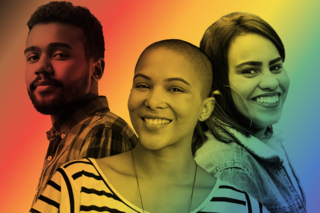Coming Out is the process in which an individual accepts and identifies with their gender identity and/or sexual orientation and shares their identity willingly with others.
Coming out and living openly isn’t something you do once- it’s a journey that LGBTQ people make every single day of their lives. People may be “out” in some spaces and “in” in others. Every coming out experience is unique and must be navigated in the way most comfortable for the individual. A decision to disclose is one of safety, comfort, trust, and readiness. Whether it’s for the first time or the the first time today, coming out can be an arduous journey. It is a brave decision to live openly and authentically. The Yale LGBTQ Center is happy to support you wherever you are own your own journey.
Living Authentically for the First Time
When you are ready to tell that first person about your sexual orientation or gender identity — or even those first few people — give yourself plenty of time to prepare. Think through your options and make a deliberate plan of who, what, why, and how. Remember that if you do not choose to come out now, or ever, your identity and experiences are still legitimate and valuable. You get to decide what is right for you.
The Human Rights Campaign has developed a number of “Coming Out Guides” to help you navigate your process. We will have a limited supply of these in print in the Yale LGBTQ Center or you access the digital copies below:



